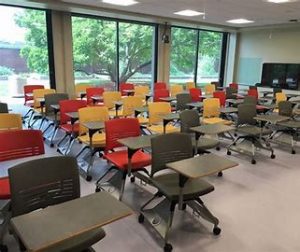Recommended Course Lists
It is that time of the year again! Registration for Summer and Fall 2022 is just around the corner! Students in ANY major can attend law school, and there are NO specifically required courses for pre-law undergrads. Law schools do not require any particular major or coursework. However, given an interest in law, we have compiled a list of suggested fall courses that pre-law students may find helpful and interesting.
Be sure to keep in mind…
-
-
- These are not exhaustive lists. There are hundreds of classes being offered this fall and summer. The highlighted classes may be particularly helpful and interesting for pre-law students, but there are many great options available that may not be listed.
- These courses are only suggestions and are NOT requirements. Students in ANY major can attend law school, and there are NO specifically required courses for pre-law undergrads. Law schools do not require any particular major or coursework.
- Recommended courses include those that examine specific and related legal topics, and also classes that provide opportunities to build skills or knowledge in areas particularly relevant to legal studies and future careers in law, including writing, research, leadership, cultural competency, communication, and critically thinking and analysis!
- Some of these courses have prerequisites or may be restricted to students in the same department; check Course Explorer for additional course details and specific enrollment requirements.
- Some courses may be more relevant to you than others – look for classes in your major/minor or on general topics that enhance your skills and knowledge.
- Keep checking back and check-in with the experts! Courses may continue to be added as we approach the fall semester. Having trouble deciding? Be sure to meet with your academic advisors for academic and course planning, we are also here to assist with course options! Professors are also a great resource to discuss goals and course options!
-
To review a handy chart version of suggested Summer 2022 course options, please click here.
To review a handy chart version of suggested Fall 2022 course options, Please Click here.
*last updated 3.28.22
See what fellow Illini say about some of the most helpful courses at Illinois…
Stella Green
Stella is currently a communications intern with the Pre-Law Advising Services Office and shared the following perspectives on her list of favorite pre-law related course…
-
- ACE 240 – Personal Financial Planning – This class helped me gain a better understanding of different financial principles. I now have a better understanding of personal finance, which I think almost anyone can benefit from. The topics covered in this course can be used and applied in the legal world, as well.
- CMN 111/112 – Although these courses are generally required for most undergraduate students, I would recommend them to everyone. I noticed great improvement in both my written and verbal communication skills.
- CMN 321 – Strategies in Persuasion– This class uses different aspects of U.S. political history and relates it to different forms of public persuasion. I became more familiar with different strategies of speech that are used in politics and the media. If you are interested in politics, I would highly recommend this course.
- Law 301 – Intro to Law –This class is a hidden gem. It is a great introduction to general law concepts and covers a variety of topics that are learned in law school. This class has given me a really great starting point as I begin my legal education. If you plan on going to law school or find interest in the legal field, I would 100% recommend this course. This course is a prerequisite to LAW 303, which applies these different concepts to real life situations. I recommend that course as well.
- RST 354 – Legal Aspect of Sport – If you are interested in sports, I would definitely take this class. It was really interesting to be able to apply legal principles to the sports industry. This class was both interesting and enjoyable. This is another class that helped me gain a better understanding of topics that will be learned in law school.
Abbey Mizer
Abbey is currently the Vice President of the Pre-Law Honors Society and shared the following perspectives on her list of favorite pre-law related course…
-
- Phil 102 – Logic and Reasoning – This class was great for learning simple logic and being able to understand and work with complex arguments.
- PS 270 – Intro to Political Theory – This class was helpful for getting comfortable with older texts and being able to put ideas about different political ideologies together.
- PS 301 – The US Constitution I – This class helps you set a foundation for understanding how to brief cases, and the different branches of government, specifically the judicial branch.
- PS 370 – Justice in the Law – This class was useful for reading and discussing a lot of court cases and practicing briefing skills. You learn how to brief cases in a way that helps you to truly understand and connect certain cases to the bigger picture of law.
- PS 492 – Undergrad Research – I did undergrad research for Prof. Samantha Frost, and found it to be super beneficial. I got to work with a team of research assistants and collaborate on a 25 page research paper. There are tons of professors who are looking for research interns, all you have to do is reach out to them via email to express your interest!
- PS 375 – Feminist Political Theory – This class is very beneficial if you want to work on your writing skills. You get to learn different political theories, how they are connected, and how to form your opinions on which theories are the most effective and why.
MaryAllison Mahacek
MaryAllison is currently a student at the University of Illinois College of Law where she serves as the Notes Editor on the Elder Law Journal. She will graduate as a double Illini in spring 2022 before sitting for the bar examination! Take a moment to view her list of favorite pre-law related course from her time as a University of Illinois undergraduate student…
-
- LAW 199: I took this my first year of college and honestly wish I would’ve wait to take it later because I completely forgot what it was like before law school. I believe the topics change each semester; when I took it, it was topics in domestic violence law. It was an awesome class, and a great primer to what law school is like.
- CMN 101: Public Speaking. Pretty sure everyone has to take this, or most people, it was a good class and got me comfortable speaking publicly.
- CMN 220: Communicating Public Policy. An interesting introduction to what public policy is, how people create policy and laws, and what it looks like in the public sector. If you want to go into government, its a great class.
- CMN 323: Argumentation. While this isn’t exactly the type of arguing you’ll be doing in law school, it helped me learn how to form arguments and use evidence to back up my claims.
- SOC 275: Criminology. An interesting view of social factors that relate to crime. I really liked this class and found it very interesting, especially for someone who wanted to go to law school.
- CMN 211: Business Communication. A great class to help you with resume tweaking, interview prep, and making presentations! While it is more business oriented, I found my resume was helped a LOT from this class and I got a lot of interview experience in, which you’ll need in law school.
- LAW 301: Intro to Law. While I didn’t take this class, I’ve heard many people liked it and it was a good introduction to topics that you’ll learn about in law school…
Considering possible minors?
Check out information about the Legal Studies Minor, including Q&A with Professor Pahre: Legal Studies Minor At A Glance



